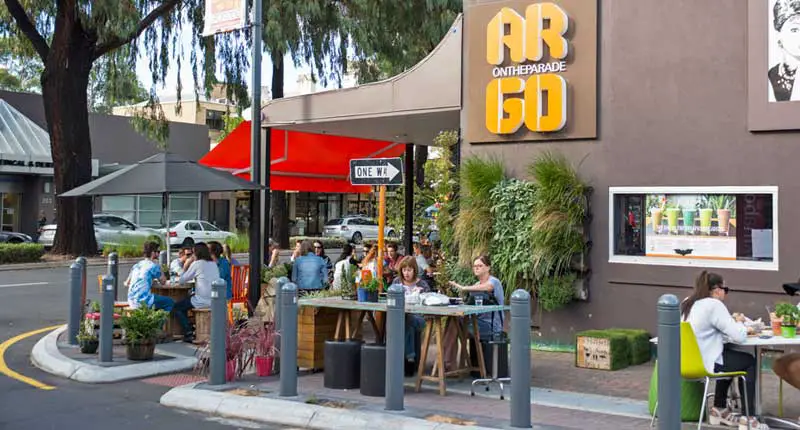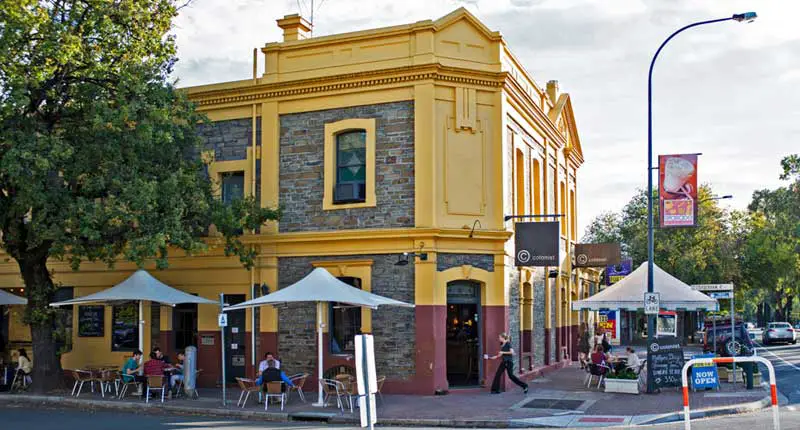
Norwood
The inner suburb of Norwood is about 4 km east of the Adelaide city centre. The suburb consists of four segments, being divided into north and south by the major thoroughfare of The Parade and east and west by Osmond Terrace. It is a leafy suburb many of whose streets are lined with plane trees and older houses, though in recent years there have been more higher density (by Adelaide standards) developments. It is now a sought-after suburb to live in, but this was not always the case.
Norwood attracted many European migrants post-World War II and still has a very high concentration of people of Italian background. This is reflected in the restaurants and fashion boutiques of The Parade. Norwood's heritage and bohemian character can be ascertained from the political voting patterns; it tends to be more left-wing in nature than the other eastern suburbs around it.

The Parade contains the business centre of the suburb, which includes some professional services but it is better known for its restaurants, cafes, fashion boutiques and hairdressers. Each year The Parade hosts the Norwood Parade Food and Wine Festival, attracting over 80,000 visitors. Osmond Terrace is a street with a wide median strip featuring a prominent war memorial commemorating ANZAC soldiers who fought in the first and second World Wars.
The most visible landmarks in Norwood are the Norwood Town Hall and the Clayton-Wesley Uniting Church (previously Clayton Congregational Church) on the north east corner of Portrush Road and The Parade.

Saint Bartholomew's (St Bart's) in Norwood and St Matthew's in nearby Kensington are two churches with a close association with each other, with three church ministers involved in both congregations. They are both evangelical and conservative Anglican churches, with a large number of young adult members.
Saint Ignatius Catholic Parish Church, built in the 1860s by the Society of Jesus (more commonly referred to as Jesuits) and finished by 1872, is also a significant feature in the suburb. The accompanying presbytery housed Mary MacKillop, founder of the Sisters of St Joseph of the Sacred Heart, where she took refuge after her (temporary) excommunication by Bishop Shiel.








